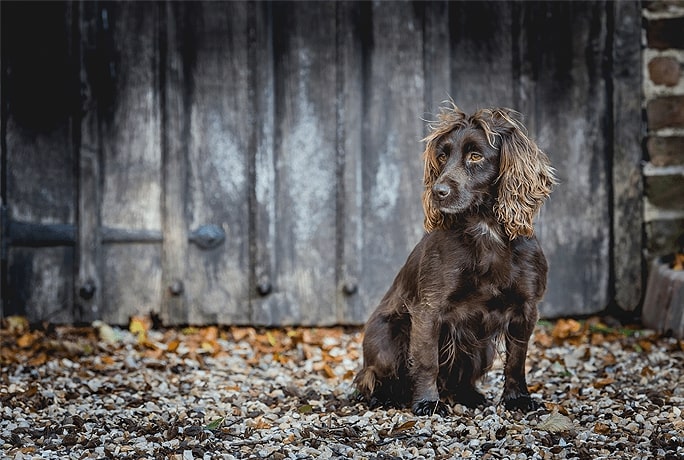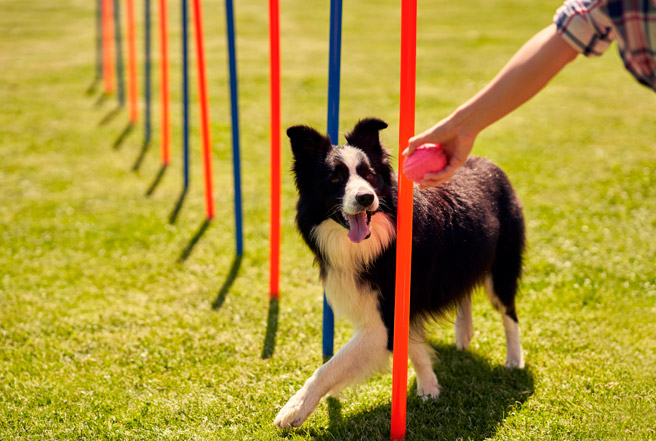Help! What do I do, my dog is eating poo!
One of the most common complaints that dog owners get concerned about is their dogs eating poo. It’s certainly not the palatable subject to consider, but given that dogs have evolved as scavengers, they have an impressive ability to find and consume items that we often find distasteful! Mostly, that scavenging tendency is limited to counter surfing, bin raiding or opportunistic finds outside the home.Sometimes those opportunistic finds include poo. The poo can be from other dogs or other animals. Sometimes, much to our disgust, it is even their own poo. The scientific term for the consumption of poo is coprophagy (meaning faeces-eating) and truthfully, it’s not as rare a doggy event as we might like to think.
So, why do dogs do it and what can we do about it? Indeed, is it something that we need to worry about? Many owners will assume that poo-eating means that their dog is not getting enough nutrients and that “something is lacking in their diet”. Other owners will swear that a dietary change will “cure” the habit. Age, gender, spay/neuter status, level of house training, age of weaning, conditions a puppy was raised in and whether a dog is kennelled or not are all debated as possible causes for poo eating. However, some recent science reveals that coprophagy is perhaps a little simpler that we might like to think. Put simply, research suggests that the simple ability to access poo is the biggest factor associated with eating it. Combine this with fresh poo (typically less than two days old) and we know that some dogs will, however distasteful it is for us, just eat it.
The research also showed that coprophagy was more commonly observed in dogs living in multi-dog households and in dogs that were described by their owners as “greedy”. There were also some breed trends observed – hounds, terriers and Shetland Sheepdogs were recorded as more likely to eat poo than poodles (ironically!)
It is also interesting to note that many of the products that are sold as “coprophagy cures” are ineffective and punishing your dog seems to have minimal effect on stopping the behaviour. Instead, its likely that some dogs just have an innate desire to eat poo or have learned to do it, perhaps by “copying” other dogs and this might account for it being more common in dogs living with other dogs!
There are obviously health risks with poo eating as many diseases can be spread through contaminated faeces. Worms are a concern, and if your dog does have a habit of eating poo, whether it is from dogs or other animals, regular de-worming or at least faecal egg counts to check the level of infestation, is essential. This is especially important if your dog has contact with children as many animal parasites can also cause short-lived infections in humans, creating problematic and potentially dangerous medical conditions. Indeed, many dogs will actively avoid poo and we use this desire as an effective way of house-training puppies via crate training as dogs will rarely foul their sleeping area. Scientists now think that poo eating might be an evolutionary remnant, with dogs cleaning up faeces (especially fresh ones) as potential sources of disease before parasite eggs become infective.
So, if your dog is in the habit of eating poo, what can you do about it? Here are our top tips;
Try to prevent your dog’s access to poo whenever possible
Be a responsible dog owner and poo pick – this is important for both the environment as well as limiting access to poo for other dogs
Encourage other dog owners to clean up their dog’s poo
Keep your garden/back yard/kennel poo free
Don’t punish your dog, instead train a “leave it” command and reward with a tastier (and to us, more acceptable!) snackReading
Hart, B. L., Hart, L. A., Thigpen, A. P., Tran, A. and Bain, M. J. (2018), The paradox of canine conspecific coprophagy. Vet Med Sci, 4: 106-114. doi:10.1002/vms3.92



